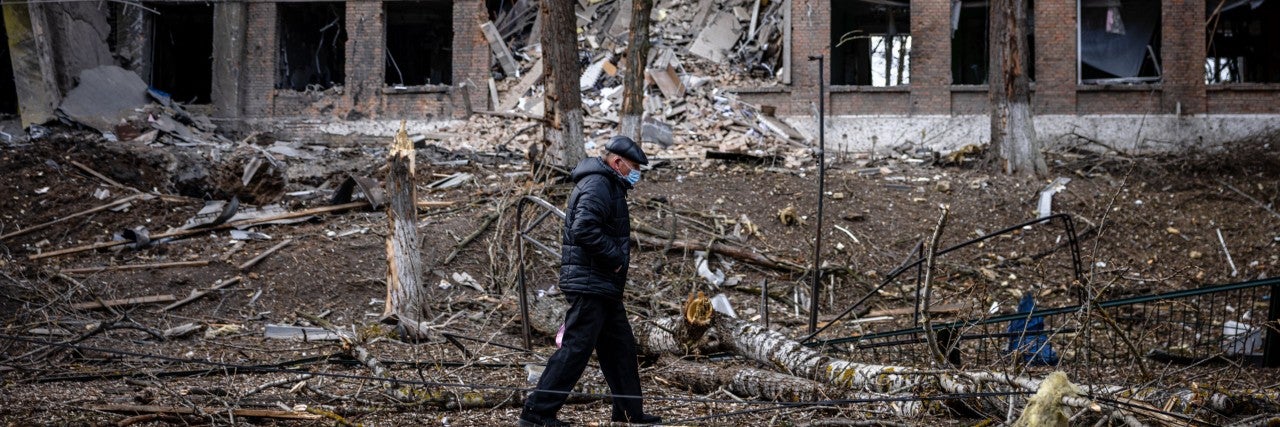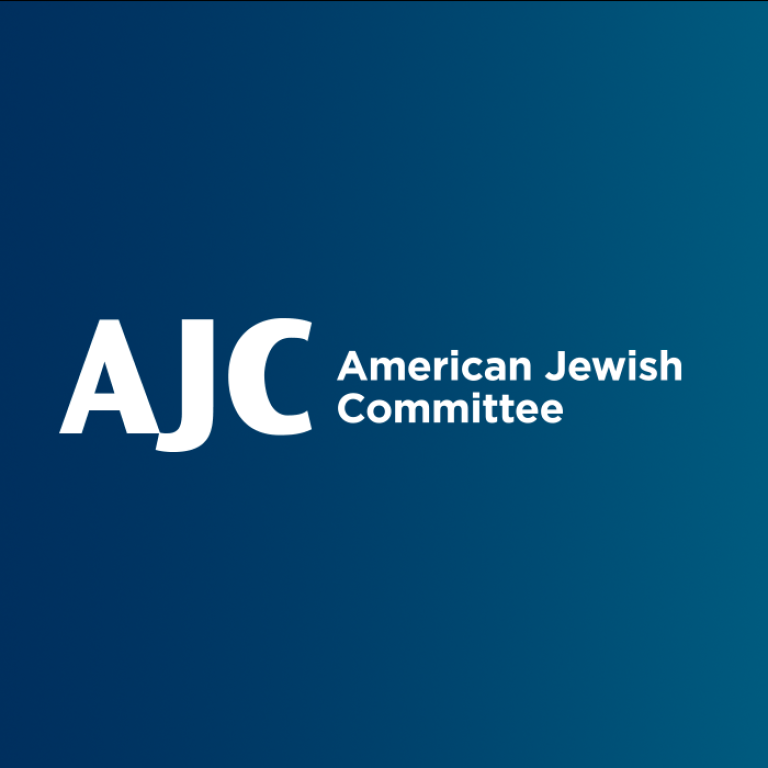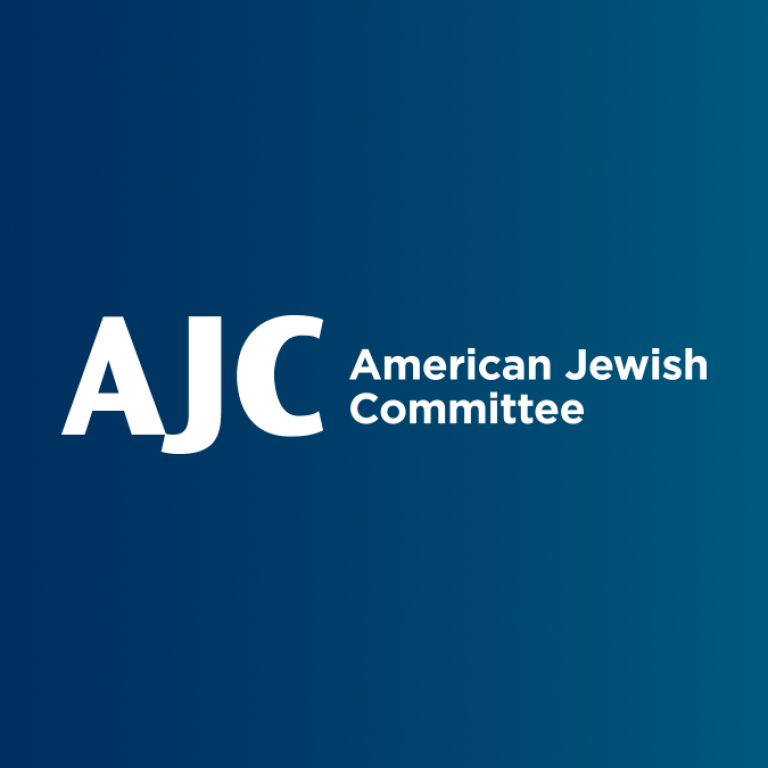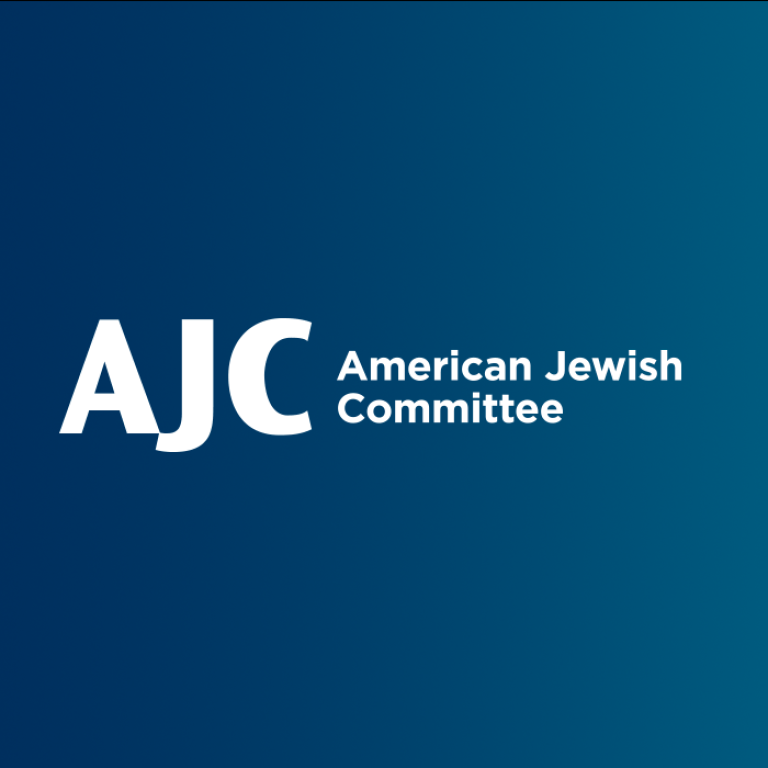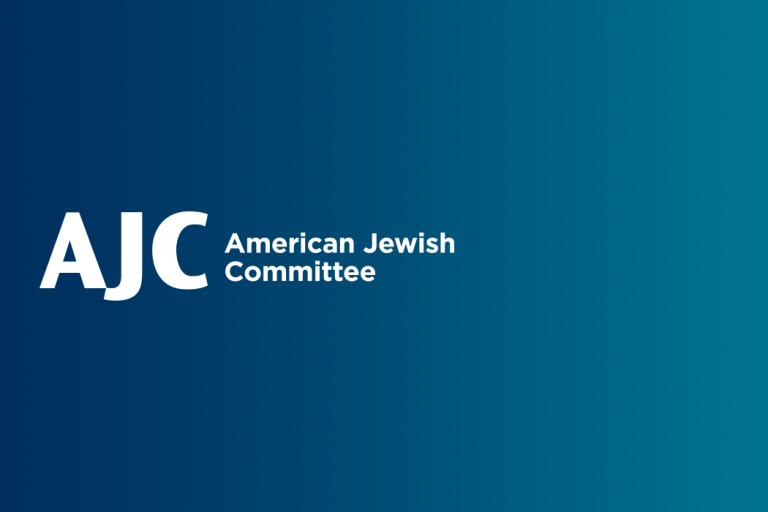March 11, 2022
As Russia’s illegal and unprovoked invasion of Ukraine enters its third week and the number of refugees pouring into neighboring countries approaches two million, questions have arisen about the fate of civilians inside Ukraine, the restrictions on citizens and journalists inside Russia, and what this means not just for Ukrainian Jews, but Jews around the world. AJC experts explain some of the cryptic memes that have emerged on social media and reports on the ground.
-
Where can Ukrainian civilians who have been forced out of their homes go? What about those people leaving Russia because they oppose the invasion?
Rabbi Andrew Baker, AJC Director of International Jewish Affairs said Ukrainian refugees are entering the border countries of Poland, Hungary, Slovakia, and Romania. “There is a well-established European Union policy for accepting and assisting refugees, and this is accompanied by strong popular support,” he said. “The real challenge is moving the large numbers at the border inland and to other EU states for care and resettlement. “
About 100,000 refugees have arrived in the border country of Moldova, which is not an EU member. An AJC #StandWithUkraine Fund grant will support IsraAID in Moldova as the international Israeli humanitarian aid organization works to establish safe spaces for children, provide medical supplies, and offer trauma counseling.
Less attention is being paid to the growing number of Russians who are leaving their country because of the political and economic conditions there. “They will have a more difficult time finding places to take them in,” Baker said.
-
What is the status of Jews in Ukraine and those who have fled to nearby countries?
Sam Kliger, AJC's Director of Russian and Eurasian Affairs, is in 24/7 contact with members of the Jewish community throughout Ukraine, including Odessa, Kharkov, and Kyiv. “Jews are suffering along with entire population,” he said. Baker added that there are about 10,000 Holocaust survivors in Ukraine who have been supported by the Claims Conference, working through JDC Chesed Centers. The Claims Conference has managed to get some ten to twenty truckloads of food and medicine from Germany across the border to Ukraine to help them, as most are too frail or infirm to leave.
Baker also has heard from partners in the Romanian Jewish Community (FEDROM) who now have a presence on the Ukrainian-Romanian border. They have tents where they provide food and clothing to Jewish and non-Jewish refugees. They have intervened with Romanian customs officials where Jewish Ukrainians may lack the proper identity papers. They have also brought a Torah scroll and erected a makeshift synagogue at the border for those observant Jews who come. Children from a Jewish orphanage in Odessa are being temporarily housed in a hotel on the Black Sea. In Romania’s capital, a former synagogue has been outfitted with beds for refugees.
-
Can Ukrainian Jews and their family members seek refuge in Israel?
AJC Director of Contemporary Jewish Life Laura Shaw Frank said among non-border countries, Israel is taking in the most Ukrainians per capita, naturalizing Ukrainians with one Jewish grandparent or married to someone with one Jewish grandparent who want to make Aliyah, or immigrate to their biblical homeland. Kliger added that those Jews who want to make Aliyah can start an expedited immigration process on the Ukrainian border, where Israeli representatives will meet them. AJC Jerusalem Director Avital Leibovich said 2,000 Jews from Ukraine and Russia have already arrived and a total of 10,000 immigration applications have been submitted.
Israel has announced it also will allow the 20,000 Ukrainian citizens who were already there before the war to stay with temporary tourist visas and admit 5,000 more. The tourist visas will be replaced with refugee visas if the war continues. More than 90% of the Ukrainians arriving at Israel’s borders are not Jewish. But a significant number of people in Israel are not Jewish: 18% identify as Muslim, 2% identify as Christian, 2% identify as Druze, and 4% identify as other.
-
What is the status of Jews in Russia now that authorities there have dramatically curtailed freedom of speech, social media, and traditional media?
While Russia insists on using the term “special operation” instead of invasion, Jews are used to reading between the lines, Kliger said. But many are considering making Aliyah or seeking refuge in other countries as the economy declines, their savings diminish, and their sons face the risk of being drafted by the Russian army to fight in Ukraine.
“What I fear is what may emerge in Russia if/when Putin is toppled as a result of the war in Ukraine and who will be blamed,” Baker said. “We could well see the reemergence of antisemitism and scapegoating of Russian Jews.”
Baker said it’s worth noting that one of the first missiles fired in this war landed at the Holocaust Memorial at Babyn Yar, close to where 34,000 Jews were murdered in September 1941. “That mass murder occurred months before Germany built its first extermination camp,” Baker said. “Perhaps had the world known the truth of that event at the time and had it been widely reported, the Holocaust might have been prevented.”
-
Why has the letter “Z” become a pro-Russian military symbol? Where does it come from? What does it mean?
The letter “Z" is one of several symbols painted on military vehicles of the Russian Armed Forces involved in the invasion of Ukraine. But it’s also become a sign of support for the invasion in Russian popular culture, emblazoned on billboards, T-shirts, and other branded merchandise. Kliger said the Russian defense ministry claims it means “Za Pobedu” (For Victory). The letter V also has been circulating to convey that “The task will be fulfilled.”
Others claim that Z means “Zapad” (West), and V means “Vostok” (East), marking two different army groups advancing from the West and East accordingly, he said. Finally, Kliger clarified what everyone is wondering: “There is no indication that Z means Zelensky.”
